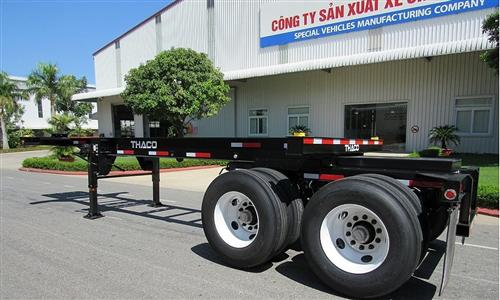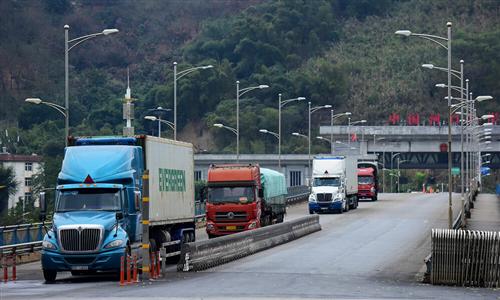Preparing for a new generation of modern factories
Preparing for a new generation of modern factories
Digitalisation, automation, and transformation are impacting every industry, disrupting skills and creating new jobs, while manufacturing is the vanguard, with new roles appearing as fast as others become obsolete. Simon Matthews, country manager of ManpowerGroup in Vietnam, Thailand, and the Middle East delves into how companies can prepare the workforce for the factories of the future.

Simon Matthews, country manager of ManpowerGroup in Vietnam, Thailand, and the Middle East
|
Manufacturing has undergone many transformations from dirty, dark, and dangerous to advanced, digital, and connected. In its “The Future Factory” research, ManpowerGroup has mapped four technical generations of manufacturing – generations zero to three. Today we are on the cusp of the third generation, characterised by the transformational power of radical improvements in connected systems and machine learning.
However, to prepare for this transformation, companies should get their workforce upskilled and reskilled to stay employable and reduce unemployment. It is a must and foremost directive to carry out in the context of digitalisation around the world.
Mapping skills
With manufacturing jobs listed in the top 10 in-demand roles globally according to the latest Talent Shortage Survey by ManpowerGroup, manufacturers are reporting growing talent shortages as they struggle to find the right blend of technical and soft skills to fill new positions.
The catalyst for the early stages of this skills shift was automation – machine strength. Now sector-wide transformation has been turbocharged by the Internet of Things, the digitally-connected enterprise, and the relentless expansion of data and AI to handle the scope of the challenge – machine thinking.
According to The Future Factory research, almost half of all roles in manufacturing (49 per cent) will need to change within the next three or five years as the industry transitions to become fully digital. ManpowerGroup’s workforce analysis identified 165 new and evolving roles across seven areas of technical expertise – what we refer to as “domains”. These include roles such as service technician, robotics engineer, data architect, product designer, app developer, technical trainer, knowledge curator, ethicist, and many, many more.
The digitalisation of manufacturing is creating a need for people with more advanced skills. The top five skill sets expected to increase significantly in the coming few years due to the influx of automation and advanced technologies are identified as SixSigma certification, computerised numerical control machines, geometric dimensioning and tolerance, Center TRACON automation systems, and PLC software skills.
The fast-changing industry will require almost a quarter of workers to become Pioneers, who are the first people to introduce the ideas and processes that will jumpstart transformation. Almost one in five people will be keystones, putting processes in place to execute the strategy, while the majority, 60 per cent, will be producers, responsible for the output, making the change happen, and executing on a daily basis. Producer roles exist in every domain, from executives and IT workers, to those on the production floor.
New upskill approaches
Vietnam is an emerging country with an abundant young workforce, which is a strong competitive advantage. Among the manufacturing sectors, footwear and textiles have created hundreds of thousands of jobs within Vietnam although in recent years electronics has moved to the forefront and is now the leading export product, overtaking garments and footwear.
However, regarding industry structure, most emerging industrial countries have low-skilled workforce and labour-intensive industries. Only 11.6 per cent of the Vietnamese workforce is highly skilled and up to 40 per cent is non-skilled, according to the Total Workforce Index. Without proper planning for upskilling their workforce, organisations will face acute talent shortages.
As a result, in the context of digitalisation and new technologies, organisations need to shift their talent strategies and find new and alternative ways to resource, develop, motivate, and retain the in-demand skills they need. Individuals need to be aware of the changing landscape too and be ready to nurture their learnability, or the ability to learn and evolve their skills, so they stay employable for the long-term. To upskill tomorrow’s manufacturing talent at speed and scale, we need a new approach to training. In ManpowerGroup’s experience, for instance, the most effective skills development is achieved through shorter certification programmes of six months or less. The two examples below can demonstrate the importance of training in the evolution of new technologies:
In the US, ManpowerGroup and Rockwell Automation launched a first-of-its kind programme in 2017, the Academy of Advanced Manufacturing, to upskill 1,000 US military veterans annually for in-demand, highly specialised roles in digital manufacturing. At the end of just 12 weeks, the programme leads to certification and well-paid, sustainable employment as automation and instrumentation controls technicians.
Building tomorrow’s talent
Technological disruption is contributing to a manufacturing skills revolution. Roles are being automated while new roles that optimise the potential of machine learning are being created. The pace of change is accelerating and companies, governments and universities need to collaborate to upskill people at speed and at scale. Without proper preparation, organisations will face talent shortages while unemployment will keep raising. Now is the time for manufacturing organisations to carry out three things.
First, they must develop a connected workforce strategy: appropriately skilled workers are not available in sufficient numbers to simply buy the necessary skilled talent, so organisations must build, bridge, and borrow the skills they need.
Second, they should identify those skills that will be critical in the short, medium, and long term – mapping the 165 new roles within the seven domains and use this information to identify future talent needs.
Finally, enterprises must understand important impacts caused by each advanced manufacturing role on the entire supply network.



















